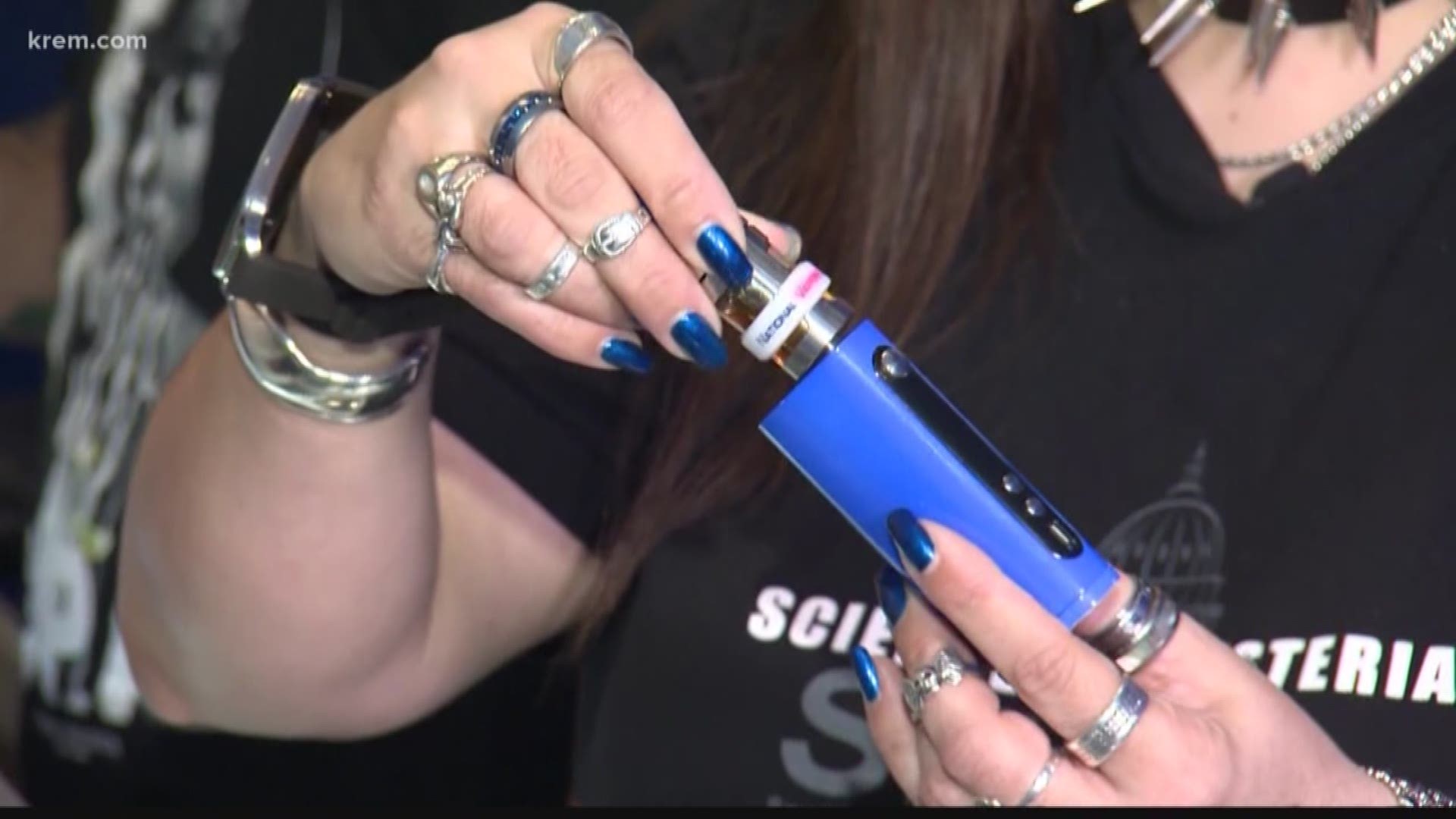SPOKANE, Wash. — In an effort to address an epidemic of vaping in school, the board of Spokane Public Schools considered a proposal last month to add fining students to the list of potential consequences for repeat offenders.
It would be used only as a last resort when other remedies failed to work. It would be a class III civil infraction, basically a traffic ticket, costing $103.
But the current board members expressed hesitancy towards the proposal and it was tabled.
Among the biggest concerns were equity, as the fines could disproportionately harm poorer students, and the involvement of the court system with kids.
But three new people were just elected to the five-member board, meaning the dynamic could soon change. The incoming group will first likely meet in early December.
So how are things looking for the proposal come that meeting? It seems likely that it will stay tabled.
The new board will consist of current members Jerrall Haynes and Mike Wiser. Unless there's a dramatic shift in ballot returns, they'll be joined by Nikki Lockwood, Jenny Slagle and Kevin Morrison.
Haynes was one of the first to raise concerns at the initial meeting. He was wary of unnecessarily getting students involved in the court system, which can often begin a cycle of criminal justice involvement.
On Monday, he told KREM he still has those concerns and would be very hesitant to support moving forward with the proposal.
Wiser did not respond to a request for comment on Monday night.
Lockwood said she's not a fan of the fines, primarily because of the equality concerns.
"If [the students] have a family that can't afford [the fine], what does that do to that family? The equity aspect of this...and rich kids will just pay it," she said.
Slagle also echoed Haynes' fears, saying "any policy that is put forth that could potentially affect kids and put them in the court system and thereby the school-to-prison pipeline, I would be against."
Morrison wasn't as concerned with that aspect, but dislikes the fine proposal anyway because he's not convinced it would even be particularly effective.
"You'll have to show me a study that says it will do anything," he said. "I don't think such behavior is going to be cut back with a fine."
Despite their hesitancy, all members who spoke to KREM said it's clear something does need to be done.
"So I can appreciate [the district] looking for any tools to help curb the activity," Morrison said.
Most current or future members say they're more interested in a public health focused approach, treating vaping as a medical addiction rather than just punishing it as a crime.
Slagle said she likes what she she's in other district, where they're "focusing on it not being a behavior problem but being an addition, because vaping has such a amount of nicotine, that they take a public health approach."
Lockwood said she's also interested in that model "because it's more effective. It's been more effective on seatbelts and on smoking cessation."
All members said that more community input is needed before they can make a final call.
That input could come at a meeting at North Central High School on Nov. 21, where there will be extensive discussion about vaping generally, though not a formal public comment period.
CORRECTION: This article has been updated to clarify that the public meeting will not be dedicated to the issue of fines, or contain traditional testimony.

